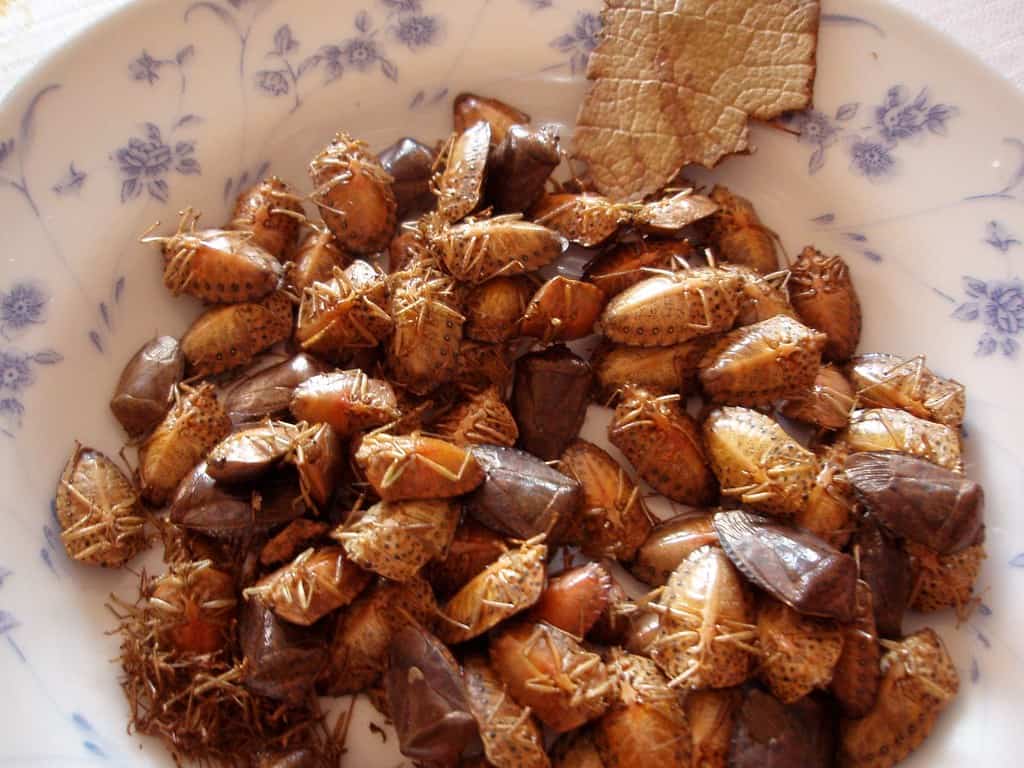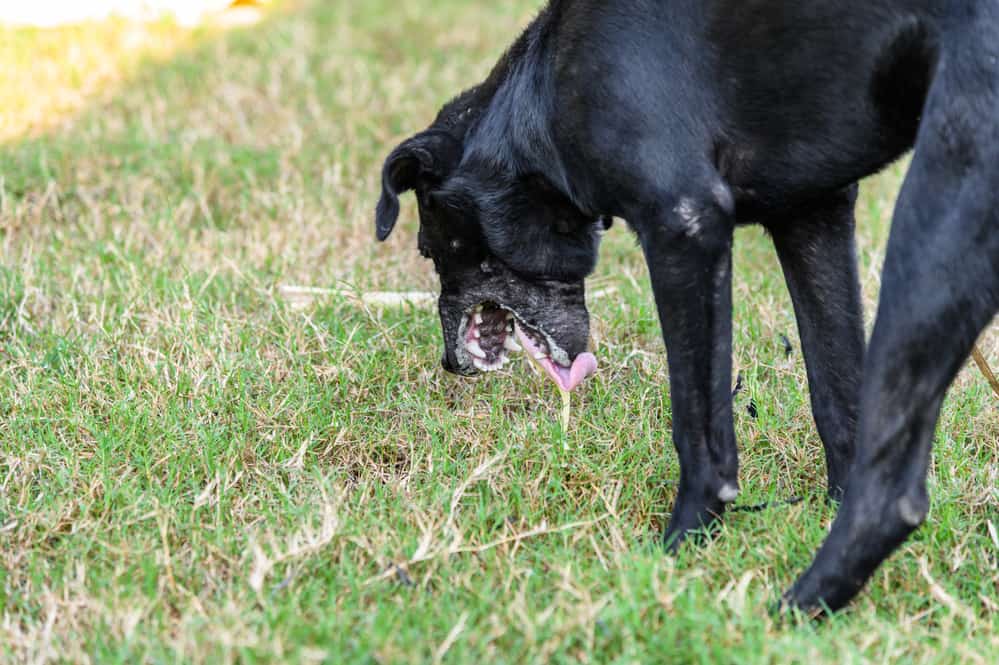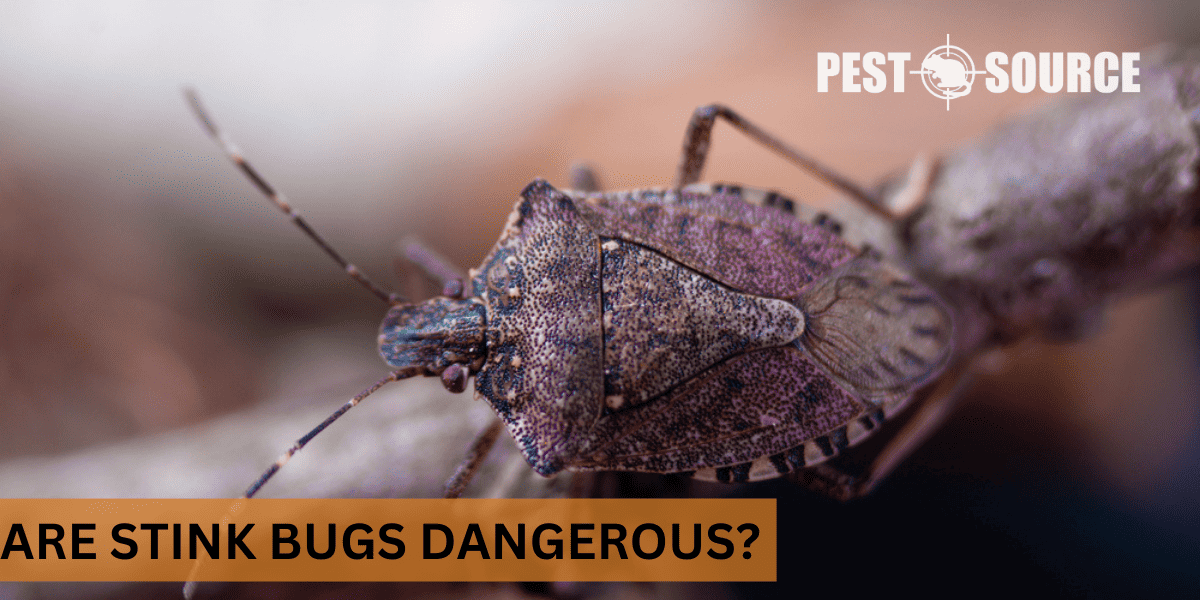In our pursuit to coexist harmoniously with the animal kingdom, we often find ourselves asking burning questions about the creatures we share our environment with. To satiate our curiosity, this article will focus on a specific insect that might have crossed your path: the stink bug. Named for their defense mechanism of releasing a pungent smell when disturbed or crushed, these bugs are infamous for being unwelcome guests in our homes.
But are stink bugs dangerous? Do they pose any real harm to humans or our furry friends? Could they potentially impact our agriculture or businesses? We aim to explore all these questions and more, providing you thorough and reliable answers about these odorous invaders.
POINTS
- Stink bugs are not dangerous or toxic to humans. They do not bite or sting, do not spread diseases, and do not cause health complications beyond occasional skin irritations or allergic reactions in some individuals.
- While stink bugs are not harmful to pets in a toxic sense, they can cause short-term discomfort if eaten due to their pungent smell and taste. Pets may experience temporary symptoms like vomiting or excessive drooling.
- Stink bugs can invade homes in large numbers, particularly during colder months. They can stain fabrics and surfaces with their secretions. However, they do not cause physical damage to household items or structures.
- Stink bugs can pose significant problems for businesses, particularly those in the agriculture and export sector. They can destroy crops and cause shipments to be rejected, leading to considerable financial losses.
- It’s crucial to correctly identify stink bugs because some species are beneficial predators of other garden pests. Proper pest identification allows for effective pest control measures to be implemented.
Are Stink Bugs Generally Harmful to Humans?
Are stink bugs dangerous?
Despite their intimidating name, stink bugs do not pose danger to humans. They do not have teeth or stingers to bite or sting humans. Their most notorious characteristic, which gives them their name, is the nasty odor they emit when they feel threatened or when they are crushed.
Are stink bugs toxic?
Stink bugs are not toxic to humans. These pests are most harmful to farmers and gardeners as they cause significant damage to crops by feeding on them.
Do stink bugs spread disease?
No, stink bugs do not carry or spread diseases. They may be annoying and cause damage to your gardens and crops, but they do not pose a health risk in this regard.
Can stink bugs hurt you?
Physically, stink bugs can’t hurt you. They do not have the ability to sting or bite. However, the foul-smelling liquid they secrete can cause temporary discomfort, especially if it comes into contact with your skin or eyes.
Can stink bugs bite or sting humans?
Typically, stink bugs do not bite or sting humans. However, some predatory species of stink bugs and a few of the plant-eating stink bugs may bite if mishandled. Nonetheless, these bites are not poisonous and will only occur in extreme circumstances.
Are All Species of Stink Bugs Dangerous?
It’s essential to understand that there are different species of stink bugs, with varying characteristics. However, their potential to cause harm to humans tends to be similar across species.
Are brown stink bugs dangerous?
No, brown stink bugs are not dangerous to humans. They are mostly known for their potential to harm crops and plants, but they do not pose a physical threat to humans or pets.
Are black stink bugs dangerous?
Black stink bugs also do not pose a direct threat to humans. They are, like all stink bugs, a more significant issue for farmers and gardeners due to their dietary habits.
Is there a poisonous green stink bug?
Green stink bugs, just like black and brown stink bugs, are not poisonous to humans. They are named for their vibrant green color, but they pose no more danger to humans than their differently-colored counterparts.
What Health Implications Do Stink Bugs Have for Humans?
While stink bugs are not dangerous in the traditional sense, they can result in unexpected health situations. The major risk posed by stink bugs to humans is due to their foul smell, which can affect individuals differently.
Can stink bugs make you sick?
Rarely, stink bugs may cause allergies and dermatological symptoms in some people. If someone is highly allergic to the fluid that they produce when defending themselves, symptoms such as a runny nose, tearing, itchy eyes, and skin irritation leading to dermatitis may occur.
Can you eat stink bugs?

While stink bugs release a pungent odor as a defense mechanism, they are not toxic and can actually be eaten. Yes, you read that right! In certain parts of the world, stink bugs are considered a tasty treat and form part of traditional diets.

In Mexico, for example, Jumiles, a type of stink bug is a common ingredient in tacos. It’s celebrated for its unique flavor that is somewhere between apple and mint. They are typically harvested in November during the annual Jumiles Festival in Taxco, Guerrero.
In Southern Africa, certain stink bug species are harvested, dried, and eaten. Comfortingly referred to as “African stink bugs,” they are a traditional food source among many African cultures. They are typically boiled to neutralize the stink and then salted and roasted. People there value their rich protein content and they play an important role in food security.
On the Asian continent, especially in Laos and northeastern parts of India, stink bugs are collected, cooked, and consumed as a valued source of nutrition.
However, despite the cultural practices in these regions, it’s essential to remember that not all countries have food regulations allowing stink bug consumption. Plus, their strong odor could make eating them palatable to only a few. Therefore, even though they can technically be eaten, it is still not generally recommended.
Do stink bugs cause health complications in humans?
Apart from causing allergies and skin irritations in some sensitive individuals, stink bugs do not typically cause any health complications in humans.
What happens when stink bugs secretions comes in contact with humans?
If stink bugs secrete their foul-smelling liquid onto human skin, it can cause discomfort and a lingering smell. The secretion can also cause skin irritation and discomfort in the eyes if it comes into contact.
How should someone handle exposure to a stink bug’s secretions?
If a person is exposed to a stink bug’s defensive compound, they should use soap and warm water to wash the affected area thoroughly. This will help remove the source of the foul smell and any potential irritants. It’s also important to avoid contact with eyes after handling a stink bug.
Are Stink Bugs Poisonous to Pets?

While stink bugs don’t pose a significant threat to human health, it’s important to understand the implications they might have for our furry friends.
Can cats eat stink bugs?
While a cat can physically eat a stink bug, they definitely should not. Stink bugs are not poisonous, but their strong smell can cause an unpleasant reaction in pets.
Can dogs eat stink bugs?
Dogs, like cats, can eat stink bugs, but it’s not recommended. Consumption of stink bugs can irritate a dog’s gastrointestinal tract, leading to symptoms like vomiting and excessive drooling.
Are stink bugs toxic to dogs or cats?
While stink bugs aren’t toxic to pets, their smell can cause discomfort and irritation. The defensive secretions of stink bugs, if ingested, can cause symptoms such as drooling, vomiting, and potential irritation in the mouth and stomach.
Can pets get sick from eating stink bugs?
Yes. While stink bugs are not fatal to pets, consuming them can cause temporary discomfort and sickness, including vomiting and a loss of appetite.
What are the risks and effects when a pet eats a stink bug?
The nasty smell and taste of stink bugs can disrupt your pet’s sense of smell and taste. It may cause them to refuse food for a while.
What to do if my dog eats a stink bug?
If your dog has eaten a stink bug, monitor them closely for any signs of distress, including excessive drooling or refusal to eat, swelling or breathlessness. If these symptoms persist, it would be prudent to consult a vet.
What to do if my cat eats a stink bug?
Much like dogs, if your cat displays signs of distress or refusal to eat, swelling or breathlessness after consuming a stink bug, it’s recommended to consult with a vet.
Can Stink Bugs Affect Your Household Environment?
Your home could potentially become a refuge for stink bugs, particularly when the weather turns colder.
Do stink bugs invade homes?
Yes, stink bugs often invade homes in large numbers, particularly during the colder months when they are seeking refuge from the outside weather.
How do stink bugs become a nuisance in homes?
Once they enter a home, stink bugs can become a nuisance due to their foul smell, especially when they are disturbed or killed.
Can stink bugs stain fabric and furniture?
Unfortunately, the liquid that stink bugs emit when disturbed can stain fabrics and surfaces. The stains are often hard to remove and may result in permanent damage.
What kind of damage can stink bugs do to household items?
Apart from the potential staining of fabrics and surfaces with their secretions, stink bugs do not cause any physical damage to household items.
What are the best ways to remove stink bugs from your home without causing a stink?
Use a vacuum to collect the bugs and dispose of them outside. Be careful not to crush them, as this will cause them to emit their foul smell.
Can stink bugs reproduce or cause damage inside houses?
While stink bugs can certainly infiltrate homes, they do not reproduce indoors or cause structural damage to the house. However, if they are crushed or vacuumed up in large numbers, their smell can be quite pervasive.
How Do Stink Bugs Impact Businesses?
Beyond the home, stink bugs can influence the way businesses operate, especially in industries related to agriculture and shipping.
Why are stink bugs problematic for businesses?
Stink bugs can incur significant costs for businesses, particularly those in agriculture and export-based industries. They can destroy crop yields, impacting farmers directly, and cause quarantines or rejections at international ports, affecting exporters.
What challenges do stink bugs pose to businesses?
Stink bugs pose a threat to a wide range of fruits, vegetables, and other crops, making them a significant pest for farmers. Businesses that rely on shipping goods, especially overseas, may find their products quarantined or rejected due to stink bug invasions.
In regions of the United States where brown marmorated stink bugs are prevalent, vehicles such as cars must undergo a process of fumigation or be subjected to temperatures exceeding 122ºF for several hours before they are permitted entry into certain international ports. These preventative measures aim to stop the spread of brown marmorated stink bugs to new countries, but they come with a considerable cost.
What costs are associated with the management and control of stink bugs in the business sector?
The costs linked to managing and controlling stink bugs can be high. They range from pest control services and damage repair to potential loss of revenue due to destroyed crops or rejected exports.
How can businesses effectively manage stink bug infestations?
Effective management of stink bug infestations starts with early identification and routine monitoring. Strategies can include the use of approved pesticides, employing natural predators, and maintaining hygiene practices to deter these pests.
Stink Bugs and Agriculture
Stink bugs can have a striking impact on agriculture, particularly due to their ability to cause significant damage to crops.
How do stink bugs affect crops and ornamental plants?
Stink bugs feed on a wide variety of crops including fruits, vegetables, nuts, and ornamental plants, causing significant damage and loss of yield. This can have a detrimental effect on both commercial farming and home gardening.
Can stink bugs be beneficial in any way to some gardeners?
Some species of stink bugs are predators of other garden pests, and therefore, they can potentially be beneficial in some garden ecosystems by helping to control populations of other pests.
What species of stink bugs are considered beneficial, and why?
Predatory stink bugs, such as the spined soldier bug, are beneficial because they feed on other pest species that can cause damage to crops and plants. The presence of these beneficial stink bugs can help manage the pest population in a garden.
How can one differentiate between harmful and beneficial stink bugs?
Correctly identifying stink bugs is an important step towards effective pest control. Beneficial stink bugs, like the spined soldier bug, have sharp shoulder projections and a pointed stinger, while pest species tend to have rounded edges and lack a stinger. Consult a pest control expert or extension service to make accurate pest identifications.
Managing Stink Bugs: Prevention and Control
Finally, knowing how to prevent and control stink bugs can help reduce their impact on your home, pets, and community.
Why is proper identification essential in managing stink bugs?
Without accurate identification, you may inadvertently kill beneficial stink bugs while trying to eliminate the pest varieties. A pest control expert can provide appropriate identification and treatment advice.
How to properly dispose of stink bugs?
The best way to remove stink bugs without causing a stink is by using a vacuum cleaner. Once vacuumed up, you can dispose of them outside. It’s best to avoid crushing stink bugs because this will provoke them to release their notorious foul odor.
What precautionary measures should one take when dealing with a stink bug infestation?
Always wear gloves when handling stink bugs to avoid any skin irritation from their secretions. Before attempting to remove or kill them, ensure all windows, doors and any other potential points of entry are sealed to prevent more bugs from entering your home.
How to get rid of stink bugs in my house?
Professional pest control services can offer effective solutions for stink bug problems, using treatments that are safe for both humans and pets. For minor infestations, vacuuming stink bugs and sealing entry points can help manage the situation.
Pest infestations can be stressful. However, with understanding, precautions, and effective pest control measures, managing stink bugs can become a manageable task rather than an overwhelming problem.
If you are dealing with a stink bug infestation, consider contacting a pest control professional skilled in identifying and removing these pesky invaders from your home.
Conclusion
While stink bugs can be quite a nuisance and potentially cause damage to your crops or discomfort to your pets, they are not dangerous in a traditional sense. They do not bite or sting humans, nor are they carriers of diseases. However, their presence can negatively influence your comfort at home or impact your business. Identifying the problem early and taking appropriate measures to manage these pests can help keep your environment stink bug-free. Remember, when in doubt, seeking professional pest control help is always a wise choice. Your home should be your sanctuary, so don’t let these little bugs run the show!



